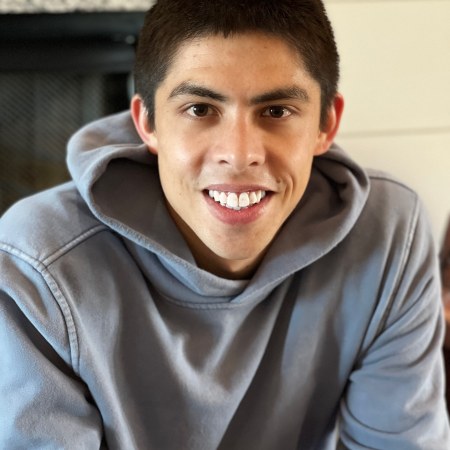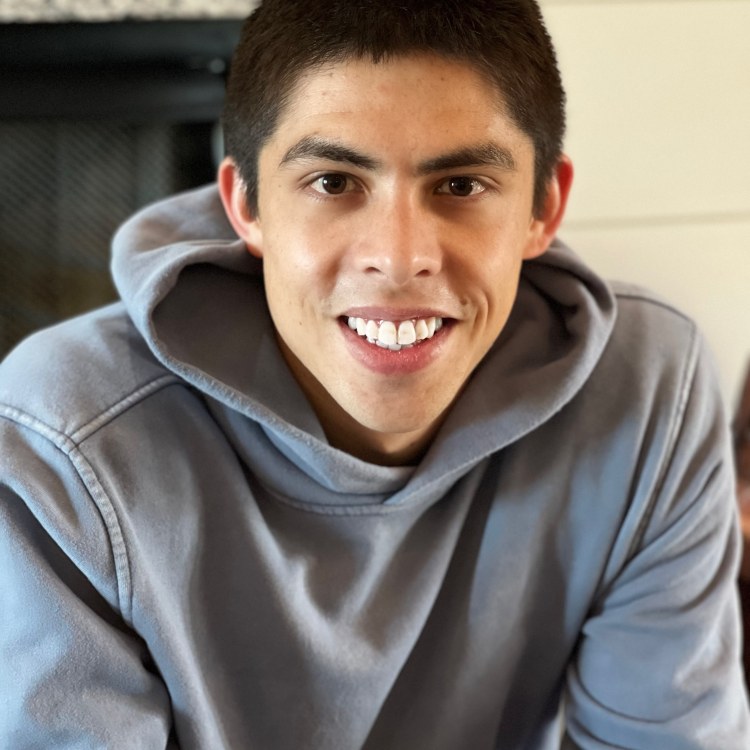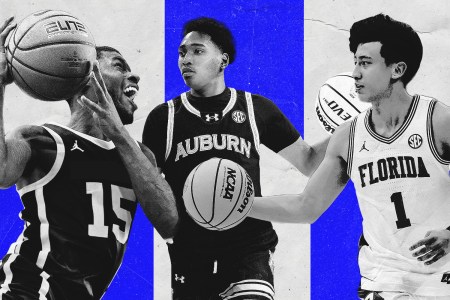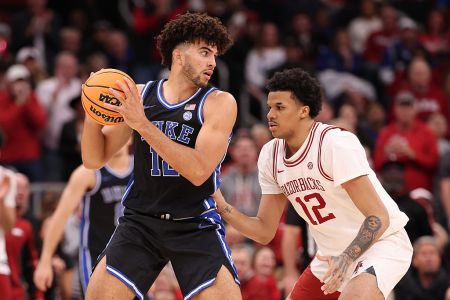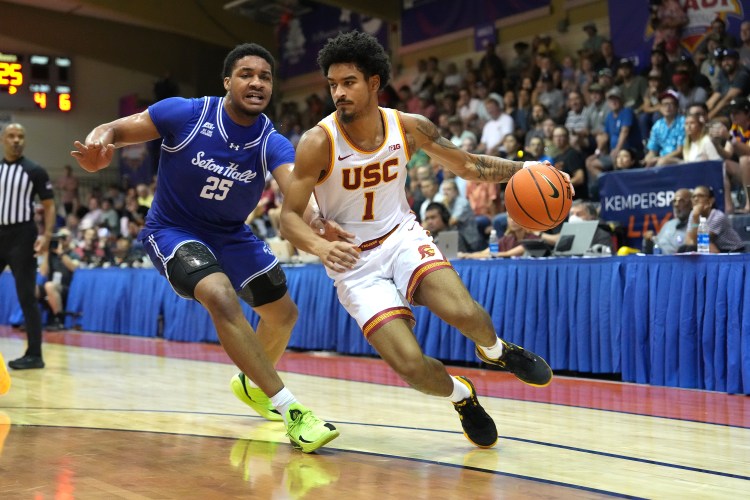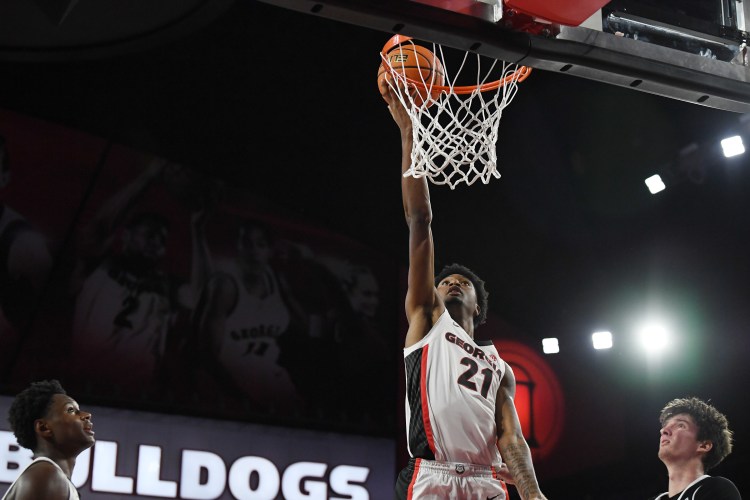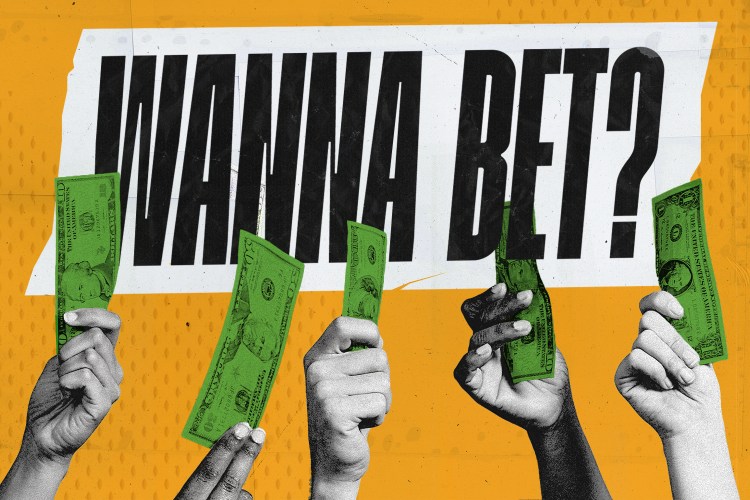At a certain point, the moves start to flow naturally. The game slows down and patterns materialize. There is far less uncertainty, which in turn breeds more confidence. The best players train so extensively that the various attacks and counterattacks become seared in their brains. “It’s all about building reflexes,” Stanford senior forward Maxime Raynaud tells Hoops HQ, “and at the same time being patient enough to take the time and analyze the situation well.”
Raynaud is talking, of course, about chess — a game he picked up at an early age in his hometown of Paris. “My grandfather used to be a chess champion in France,” he says. “So I kind of grew up around it.” He was in the chess club in primary school and has made many friends through the years who share the hobby, including San Antonio Spurs superstar Victor Wembanyama, Raynaud’s former teammate on the French club Espoirs Nanterre and the national team. Last summer, a photo of the two seven-footers hunched over a chess board was widely shared on social media. Wembanyama also made headlines in late December when he showed up at New York City’s Washington Square Park to play chess against strangers. He may be better than the average player, but Wemby is no match for Raynaud. “I’m pretty good at it,” Raynaud says, putting it modestly. “He’s still little bro when it comes to chess.”
Raynaud, 22, has honed his skills from years of competing and studying the game online. The game also provides a brief escape from his principal focus: basketball. “For me it’s chess, but it can really be anything,” he says. “It can be hiking and walking around. For some people, it’s art, music, that kind of stuff. I really believe having these kinds of hobbies that balance your life and stress can be really helpful.
“Let’s not get it confused,” Raynaud adds, “basketball is my number one.”
The 7-foot-1 forward has made that abundantly clear over the past few years. During his fourth season with the Cardinal, Raynaud averaged 20.2 points, 10.6 rebounds and 1.4 blocks per game, while shooting 46.7 percent from the field and 34.7 percent from three. He was the main reason that Stanford, which was projected to finish 17th in the ACC, placed seventh with an 11-9 record (21-14 overall).

Now Raynaud is preparing for what he hopes is his next big move — joining his buddy Wembanyama in the NBA. He is not a projected first-round pick, according to Hoops HQ draft expert Jonathan Wasserman, but Raynaud is widely believed to be a surefire second-round pick with a chance to play into the first round if he performs well at the NBA Draft Combine in Chicago next month and in subsequent team workouts.
Raynaud enters draft season as a familiar prospect to NBA scouts. Several told Hoops HQ they are especially intrigued by his potential to shoot from long range. Raynaud averaged 5.5 three-point attempts per game this year, up from 1.9 last season. “You want him to be a better shooter, but what he’s shooting for his size and position is not bad,” an NBA scout said. “He also is capable of scoring around the basket. He can make a jump hook. He’s got a soft touch. In the NBA, nobody’s going to throw it to him with his back to the basket, but he will be in the dunker spot in the 15-foot area where you could drive and kick it to him and he can make a play from there.”
On top of his scoring ability, Raynaud is a solid passer who can fill multiple roles. Another scout referenced a game in which Stanford was missing its point guard due to injury, so Raynaud assumed more ball-handling duties. “It didn’t look terrible,” the scout says. “He’s just confident all the way around and it’s permeated into his leadership. I think there’s a seriousness to his focus and his approach. He wants things done the right way and he’s willing to hold his teammates and himself accountable.”
While sensational Duke freshman Cooper Flagg — the soon-to-be No. 1 pick in the ‘25 draft — was the runaway ACC Player of the Year, Raynaud came in second after leading the conference in rebounding and ranking second in scoring. He was named ACC Scholar-Athlete of the Year, an award based on 60 percent academic achievement and 40 percent athletic achievement. Raynaud studies mathematics and computer science.
On Feb. 26, Raynaud broke Stanford’ s school record for double-doubles in a single season, registering his 21st in a 78-60 victory over Boston College. Cardinal coach Kyle Smith, who was at Columbia (2010-16), San Francisco (2016-19) and Washington State (2019-24) before taking over at Stanford, said at the time that Raynaud was having the best season of any player he has ever coached. Raynaud buried four or more threes in six different outings and scored double figures in all but two games. He left Stanford ranked in the top 10 in program history in total points (seventh) and rebounds (third).
As a teenager, Raynaud, the son of biotech engineers, was torn between pursuing basketball or focusing entirely on his education. In France, where athletes turn professional much younger, it is impossible to do both. Raynaud was a promising player with extraordinary size, but he was also passionate about academics and enrolled in one of the country’s top secondary schools. Then Stanford called, and Raynaud no longer had to choose between the two paths. “If you can do both, why not do it?” he says.
While Raynaud felt incredibly grateful for the opportunity, he admits that his transition to Stanford was challenging given the language barrier and all the cultural differences. He played a limited role as a freshman, averaging 4.5 points and 3.8 rebounds in 12 minutes off the bench. The ensuing season, he started in 23 of 33 games and upped his numbers to 8.8 points and 6.1 rebounds per contest.
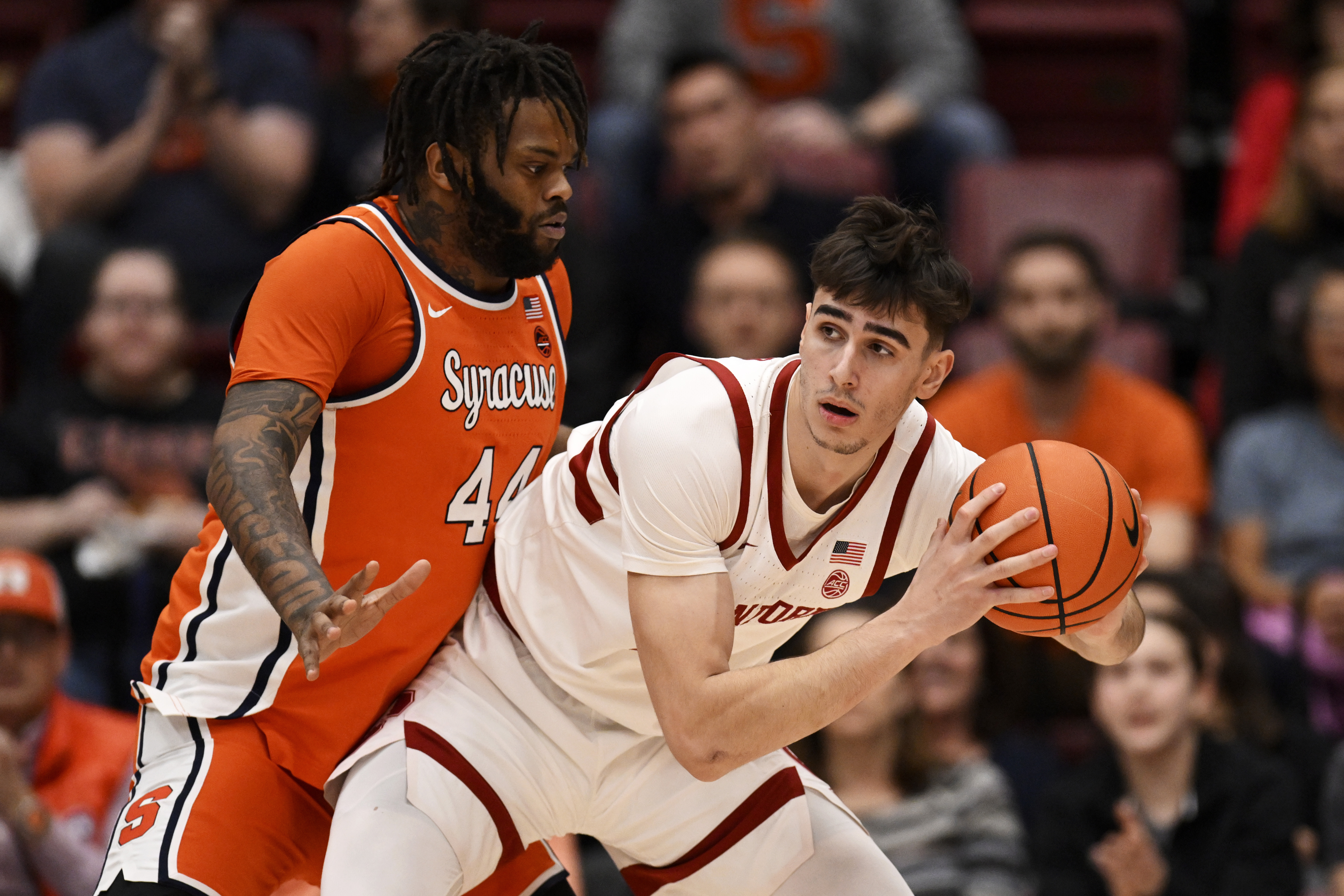
Still, the Stanford staff felt as though Raynaud wasn’t realizing his full potential. When it came to basketball, his work habits needed to improve. Coaches challenged him to be more consistent. David Berkun, then the team’s director of operations and player personnel and now an assistant at Illinois-Chicago, went as far as to tape a three-page note to Raynaud’s locker featuring an inspiring quote from Hall of Fame coach Tony Dungy: “The truth is that most people have a better chance to be uncommon by effort than by natural gifts. Anyone could give that effort in his or her chosen endeavor, but the typical person doesn’t, choosing to do only enough to get by.”
The message was well received. With support from Berkun, Raynaud began dedicating more time and effort to basketball, including making 150-200 extra game-shots per day. “It’s all about growing up and being more experienced,” Raynaud says. “I do believe that we’re surrounded by the right people (at Stanford). We have people who want you to perform at your best and want you to be the best person you can be — and also your teammates and people off the court. So naturally you’re going to try and mimic what they do. You’re going to try to put in more hours, understand why you’re putting in more hours. And I think it was just a part of me maturing on and off the court, and eventually that helped a lot over the past couple of years.”
Raynaud took off as a junior, winning Pac-12 Most Improved Player with averages of 15.5 points and 9.6 rebounds per game. He followed that up with a historic senior campaign that put him firmly on the radar of NBA front offices. More than anything, scouts have been impressed with Raynaud’s increased confidence and assertiveness. “Day after day, you start to get more used to what the defenses throw at you and know your strengths a little bit better,” Raynaud says. “And on top of that, the whole team and the coaching staff believes in me.”
In the NBA, Raynaud figures to slot in as a third-string big with the ability to become a team’s back-up. “If he’s a second or third center and he has good feel, he’s a capable passer, he’s a capable shooter, he’s a capable scorer — those things are pretty valuable for a guy in that role,” a scout says. Raynaud does struggle a bit on the defensive end. Despite his height, he is not an elite rim protector, averaging less than a block per game throughout his Stanford career. There are concerns about his lack of physicality and toughness inside as well.
Nonetheless, Raynaud will get a chance at the next level because of his rare offensive talent and his potential to develop even further, particularly as an outside shooter. “The main thing is you trust your work,” Raynaud says. “When you know you’ve put in a ton of hours, you’re more confident in your ability to make things happen.”
